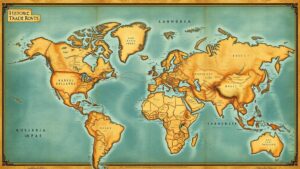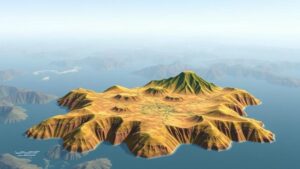How to Effectively Plan Research Trips for Accessing Distant Archives
How to Effectively Plan Research Trips for Accessing Distant Archives
Research trips to distant archives represent an essential component of historical scholarship, allowing researchers to access primary sources that are often unavailable digitally. Successfully planning these trips requires comprehensive preparation, critical logistical considerations, and an understanding of archival practices. This article outlines effective strategies for planning research trips, supported by practical examples and relevant data.
Understanding the Importance of the Archive
The first step in planning a research trip involves understanding the significance of the archive in question. Distant archives can hold unique collections that may not be available elsewhere. For example, the National Archives in Kew, UK, houses over 1,000 years of history, including critical documents related to British government and military strategies.
According to a 2021 study by Research Libraries UK, approximately 55% of researchers stated that access to unique archival material substantially influenced their research outcomes. This underscores the importance of accessing these repositories for original materials.
Pre-Planning Research
Effective planning begins with a thorough understanding of the resources available in the targeted archive. Researchers should:
- Conduct preliminary research to identify relevant collections.
- Contact archivists for guidance on specific materials.
- Review the archives access policies and any potential restrictions.
An example of this is the Houghton Library at Harvard University, which offers detailed guides on collections and has accessible archivists who assist researchers prior to their visits.
Logistical Considerations
Logistics play a crucial role in the effectiveness of research trips. Key logistical factors include travel arrangements, accommodation, and funding availability. It is advisable to:
- Book travel and accommodations early to secure favorable rates.
- Consider public transport options and proximity to the archive.
- Budget for potential overages, including additional research days or unplanned expenses.
For example, research trips to the Library of Congress in Washington, D.C., require prior booking of reading rooms and can facilitate transportation options through the extensive public transit system in the area.
Document Preparation
Before the trip, researchers should prepare their documentation meticulously. This can include:
- Writing a research proposal outlining objectives and questions.
- Creating a list of specific materials to consult based on prior research.
- Organizing any necessary funding applications or grant requests.
Having an organized approach can save time during the visit. For example, a researcher focusing on World War II documents might compile a list of personal letters and government reports they wish to examine at the Imperial War Museum in London.
Maximizing Time at the Archive
Once at the archive, utilizing time efficiently is critical. Strategies include:
- Prioritizing collections based on research importance.
- Documenting findings thoroughly, including photographs and notes.
- Maintaining open communication with archive staff for assistance and insights.
Engaging with archivists, such as those at the Uppsala University Library in Sweden, can provide unforeseen leads in research, as they often know details about the collections that researchers may overlook.
Post-Trip Actions
After returning, researchers should review their notes and any acquired materials promptly. Effective post-trip actions include:
- Digitizing any physical materials for easier access.
- Writing a comprehensive report summarizing findings.
- Revisiting research questions in light of new data acquired.
Useing such practices ensures that insights from the trip are integrated into ongoing research and can enhance the quality of scholarship produced moving forward.
Conclusion
Research trips to distant archives require significant planning and organization to be effective. By understanding the significance of the archives, conducting thorough pre-planning research, considering logistic factors, preparing documentation, maximizing time at the archive, and engaging in post-trip evaluations, researchers can enhance their scholarly output. With increasing travel and research costs, the prudent execution of these steps is not only advantageous but necessary for academic success in a rapidly evolving research landscape.


